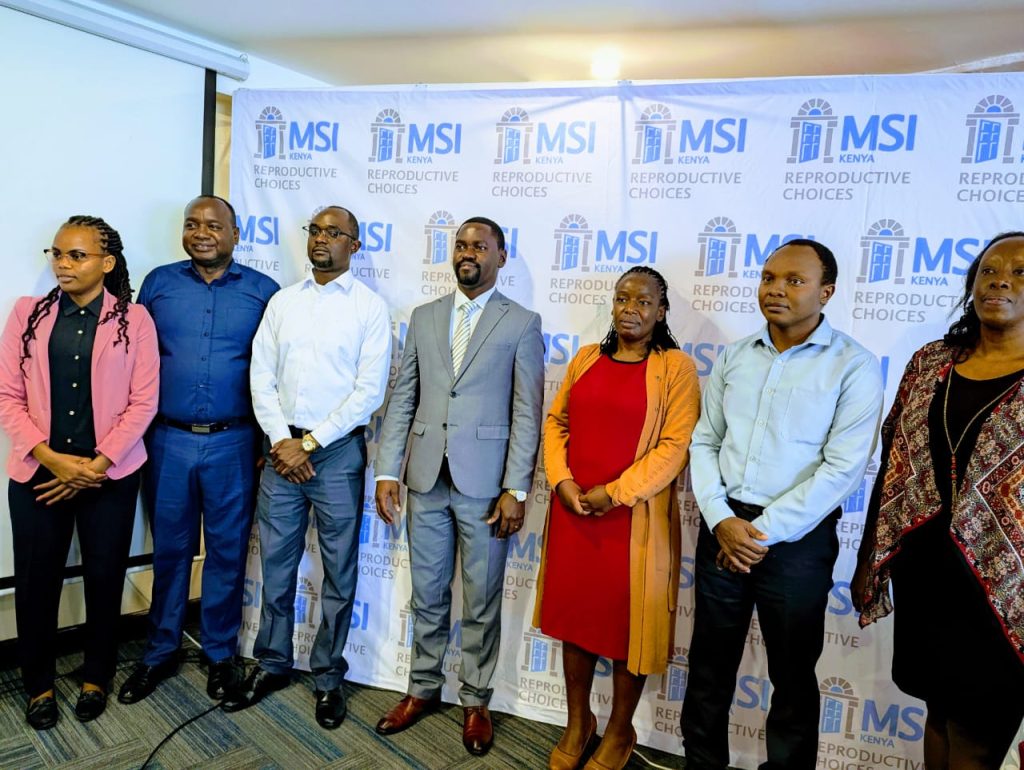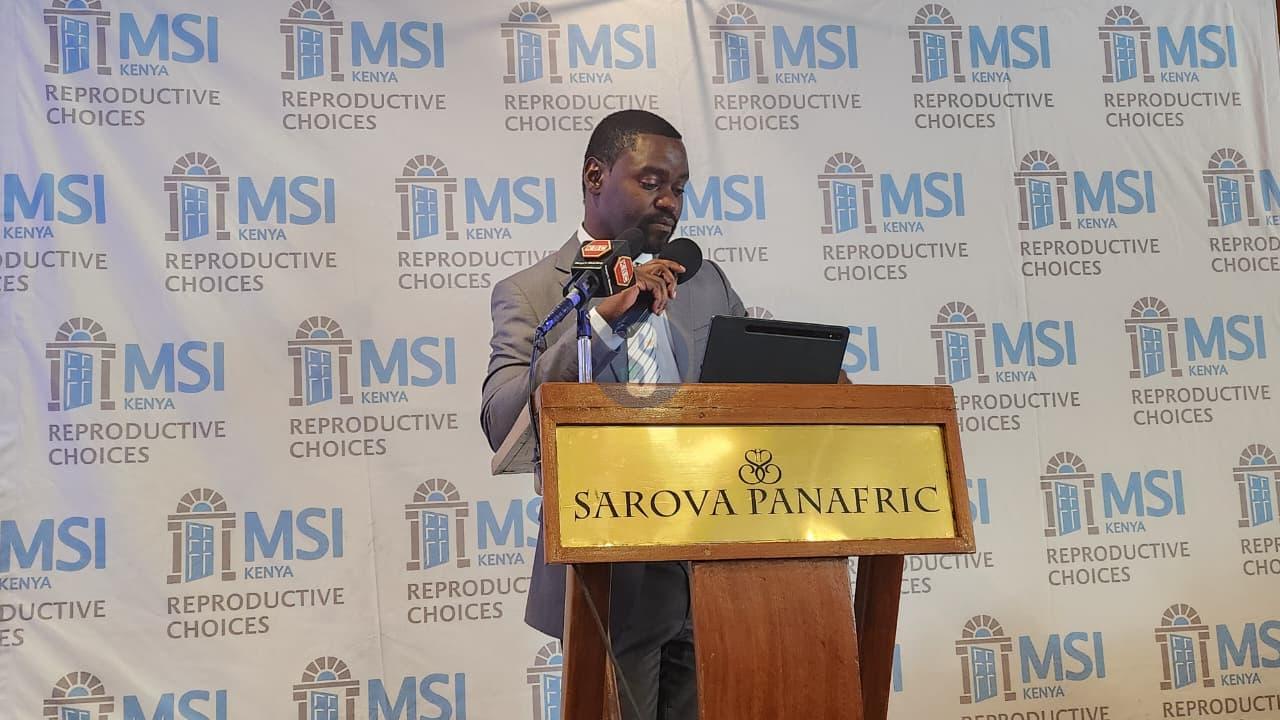Dr. Walter Obita, Country Director at MSI Kenya speaking at Nairobi hotel on August 11, 2025.
By Peace Muthoka.
Nairobi, Kenya – Marie Stopes (MSI) Kenya is celebrating 40 years of delivering reproductive health services and championing choice for all, with a renewed focus on reaching Kenya’s most underserved communities.
“We are especially proud of our work in the most remote and neglected areas,” said Dr. Walter Obita, Country Director at MSI Kenya. “Through strong partnerships with the Ministry of Health and county governments, we have strengthened health systems in over 200 public hospitals.”
From informal settlements to semi-arid lands, MSI’s mobile outreach teams staffed with trained medical professionals—bring life-changing care to communities that might otherwise go without. In 2024 alone, the organization provided 2,493 permanent contraceptive methods, including vasectomies and bilateral tubal ligations.
Its network includes 15 outpatient clinics and a full-service maternity hospital, with proceeds reinvested into programs for vulnerable groups. Through its Private Sector Network, MSI collaborates with more than 60 clinics nationwide, while also distributing essential reproductive health products to ensure both availability and choice.

Post-abortion care remains a cornerstone of its work. “It’s not illegal; it is restricted,” Dr. Obita explained, warning that restrictive laws force many women into unsafe procedures. “These lead to complications and, tragically, deaths of women and girls.” He called for safe, respectful, and compassionate care to protect health and dignity.
To address unsafe abortions, Dr. Obita outlined three urgent priorities: reforming policies to enable safe services, providing reproductive health education for the public and healthcare providers, and expanding access to contraception. “Contraception prevents unintended pregnancies and allows people to have children by choice, not by chance,” he emphasized.
He also challenged harmful myths such as fears about vasectomy affecting libido or the irreversibility of long-acting contraceptives and noted that cultural resistance still blocks access in some areas.
This milestone comes amid a funding crisis following the withdrawal of USAID support, putting contraceptive supplies at risk. MSI Kenya is urging the government to boost domestic financing and remove barriers, especially for young people and adolescents.
Looking ahead, the organization plans to expand access through innovation, strengthen community partnerships, and influence policies that safeguard reproductive rights. “Together, we will keep transforming lives one choice at a time,” Dr. Obita affirmed.










